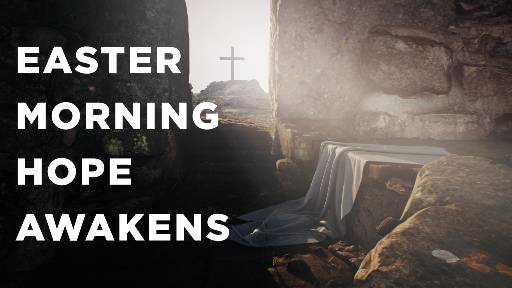-
Present Provision And Past Deliverance
Contributed by Christopher Holdsworth on Sep 19, 2025 (message contributor)
Summary: The presentation of the first of the first-fruits as an occasion of Thanksgiving.
PRESENT PROVISION AND PAST DELIVERANCE.
Deuteronomy 26:1-11.
1. The One Whom We Worship.
It was the LORD their God who was going to bring Israel into the land of their inheritance (Deuteronomy 26:1). It was the LORD their God, not the Canaanites’ Baal, who would give them bountiful harvests (Deuteronomy 26:2). It was the LORD their God who gave them a tabernacle, so that His Name might abide there (Deuteronomy 26:2).
Similarly, the church has received an inheritance in Christ Jesus, guaranteed to us by the gift of the Holy Spirit (Ephesians 1:11-14). It all began with a sovereign and merciful act of the true and living God (Ephesians 2:8). The LORD has chosen to “tabernacle” amongst us in the Person of His dearly beloved Son (John 1:14), and He is present with us wherever and whenever we meet in His Name (Matthew 18:20).
2. Present Provision.
When the Israelite farmer began to gather his harvest, he was to take the first of the first-fruits in a basket to the officiating priest in the central sanctuary (Deuteronomy 26:2). There the worshipper would make a solemn declaration of the goodness of the LORD: identifying himself with Abraham, to whom the promise was first made; and with his forefathers who first entered the land in the days of Joshua (Deuteronomy 26:3). The priest would lay the offering in front of the altar of the LORD (Deuteronomy 26:4).
The beginning of harvest would thus present an opportunity to reflect upon the goodness of the LORD in the whole cycle of life. It is He, not Baal, who makes His sun to rise on the evil and the good, and sends rain on the just and the unjust (Matthew 5:45). The presentation of the first-fruits of our blessings is an acknowledgement of the graciousness of God in our daily provision (Deuteronomy 26:10).
3. Past Deliverance.
A second liturgical response, in the form of the recitation of a collective remembrance, serves to reinforce the worshipper’s identity with the rest of the community. Jacob, the forefather of the nation, is identified as “a wandering Syrian, about to perish” (Deuteronomy 26:5). Then he took his family down into Egypt, “few in number” - and grew into a “great nation, mighty and populous” (Deuteronomy 26:5).
Their persecution by the Egyptians (Deuteronomy 26:6), and the consequent despairing cry of the Israelites (Deuteronomy 26:7) was remembered. The compassion of the LORD was acknowledged (Deuteronomy 26:7), and His mighty deliverance “with signs and wonders” (Deuteronomy 26:8). The wilderness and Sinai are passed over without comment, and the worshipper identifies himself with those who came into a “land flowing with milk and honey” (Deuteronomy 26:9).
4. Who We Are In The Lord.
Past events define who we are in Christ Jesus to this very day. Like the “wandering Syrian” we were “about to perish” (Deuteronomy 26:5). We were “dead in trespasses and sins” (Ephesians 2:1-3). Then God stepped in (Ephesians 2:4-7).
We who were “not a people” are now made the people of God (1 Peter 2:9-10). We were delivered from the bondage of sin and of death, and relocated in the abundance of His life and blessings. We are partakers of His resurrection (Ephesians 2:6), and have received the pledge of greater things to come (Ephesians 1:13-14).
5. Our Response.
The devout worshipper again acknowledged the goodness of the LORD in the giving of the land, and in providing the abundance that flows from it (Deuteronomy 26:9-10). There followed an opportunity for responsive worship (Deuteronomy 26:10), thanksgiving, and the sharing of His bounty with others (Deuteronomy 26:11). We must not forget the gracious benefits which are ours in Christ Jesus, but part of our worship must include the giving of support to His ministers (represented here by the Levites), and to the poor and needy in our midst.
“Bless the LORD, O my soul; and all that is within me bless His holy name! Bless the LORD, O my soul, and forget not all His (gracious) benefits” (Psalm 103:1-2).

 Sermon Central
Sermon Central



